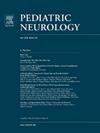生酮饮食治疗小儿顽固性癫痫和神经代谢疾病的结果:来自伊朗第一次登记的见解
IF 2.1
3区 医学
Q2 CLINICAL NEUROLOGY
引用次数: 0
摘要
生酮饮食(KD)的特点是其高脂肪、中等蛋白质和低碳水化合物组成,促进酮体水平升高。本研究旨在利用伊朗首个登记系统的数据,评估KD在小儿顽固性癫痫和神经代谢紊乱患者中的疗效。方法2019 - 2022年在伊朗Mofid医院小儿神经内科门诊进行横断面研究。65例儿科患者(男童38例,女童27例;平均年龄(7.8±3.09岁),伴有难治性癫痫、自闭症谱系障碍或神经代谢障碍。患者接受不同类型的KD治疗(经典、改良阿特金斯饮食、低血糖指数治疗)。收集发作频率、发育结局及并发症数据,采用SPSS v24软件进行分析。结果KD治疗1个月和3个月后,50%的患者癫痫发作频率显著降低,部分患者实现了癫痫发作自由(在研究的6个月期间没有癫痫发作)。发育结果显著改善,运动迟缓(从62%降至37%)、语言迟缓(从84%降至43.3%)和智力迟缓(从89%降至45%)均有所减少(P <;0.05)。停药的最常见原因是胃肠不耐受(嗜睡、恶心、呕吐)和缺乏家庭合作。结论生酮饮食是一种安全有效的治疗顽固性癫痫和神经代谢性疾病的方法。研究结果强调了患者登记系统在优化KD管理和减少不良反应方面的价值。为了证实这些结果和完善临床建议,未来有必要进行更大规模的研究和延长随访时间。本文章由计算机程序翻译,如有差异,请以英文原文为准。
Outcomes of Ketogenic Diet in Pediatric Intractable Epilepsy and Neurometabolic Disorders: Insights From the First Iranian Registry
Background
The ketogenic diet (KD) is characterized by its high-fat, moderate-protein, and low-carbohydrate composition, promoting elevated ketone body levels. This study aimed to evaluate the efficacy of KD in pediatric patients with intractable epilepsy and neurometabolic disorders using data from the first Iranian registry system.
Methods
A cross-sectional study was conducted at the pediatric neurology clinic of Mofid Hospital, Iran, from 2019 to 2022. Sixty-five pediatric patients (38 boys, 27 girls; mean age 7.8 ± 3.09 years) with refractory epilepsy, autism spectrum disorder, or neurometabolic disorders were included. Patients received different KD types (classic, modified Atkins diet, low glycemic index treatment). Data on seizure frequency, developmental outcomes, and complications were collected and analyzed using SPSS v24.
Results
At one and three months postinitiation of KD, a significant reduction in seizure frequency was observed in >50% of patients, with some achieving seizure freedom (no episode of seizure in the six months period of the study). Developmental outcomes improved significantly, with reductions in movement delay (from 62% to 37%), language delay (from 84% to 43.3%), and mental delay (from 89% to 45%) (P < 0.05). The most common reasons for KD discontinuation were gastrointestinal intolerance (lethargy, nausea, vomiting) and lack of family cooperation.
Conclusions
The ketogenic diet is an effective and safe therapeutic option for pediatric patients with refractory epilepsy and neurometabolic disorders. The findings underscore the value of patient registry systems for optimizing KD management and reducing adverse effects. Future studies with larger cohorts and extended follow-ups are necessary to confirm these results and refine clinical recommendations.
求助全文
通过发布文献求助,成功后即可免费获取论文全文。
去求助
来源期刊

Pediatric neurology
医学-临床神经学
CiteScore
4.80
自引率
2.60%
发文量
176
审稿时长
78 days
期刊介绍:
Pediatric Neurology publishes timely peer-reviewed clinical and research articles covering all aspects of the developing nervous system.
Pediatric Neurology features up-to-the-minute publication of the latest advances in the diagnosis, management, and treatment of pediatric neurologic disorders. The journal''s editor, E. Steve Roach, in conjunction with the team of Associate Editors, heads an internationally recognized editorial board, ensuring the most authoritative and extensive coverage of the field. Among the topics covered are: epilepsy, mitochondrial diseases, congenital malformations, chromosomopathies, peripheral neuropathies, perinatal and childhood stroke, cerebral palsy, as well as other diseases affecting the developing nervous system.
 求助内容:
求助内容: 应助结果提醒方式:
应助结果提醒方式:


